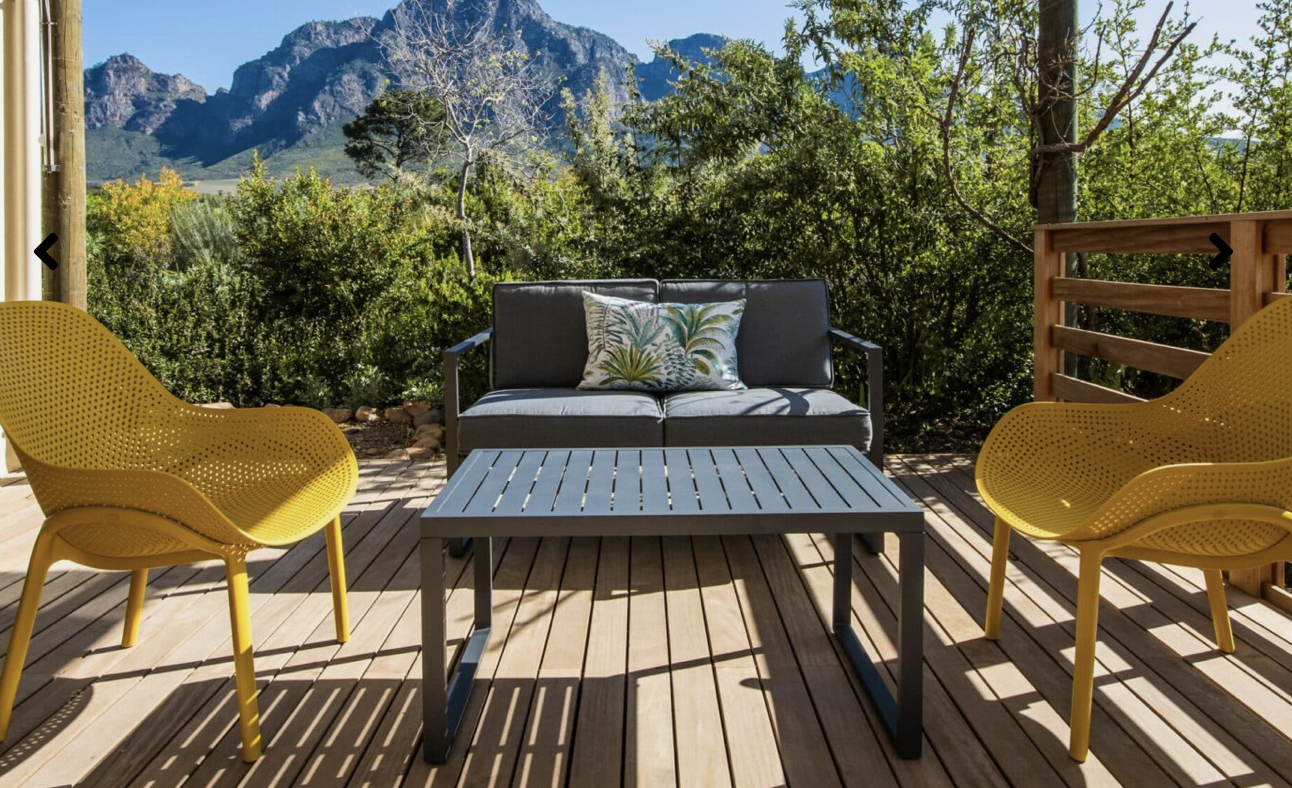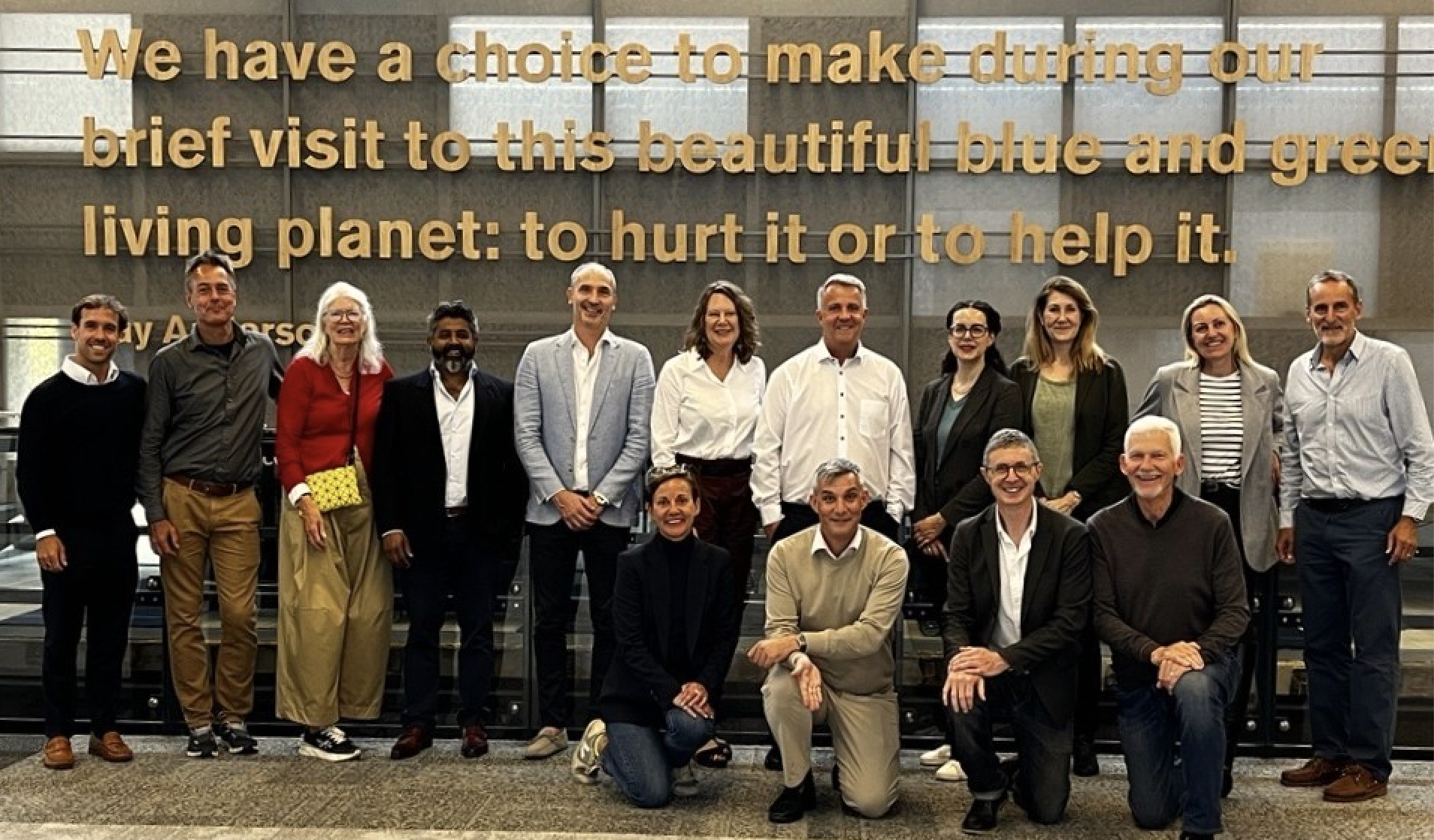
Edition #02
ONE EARTH LEADERSHIP & THE ALL LIFE INSTITUTE
We are pleased to introduce our co-founding institution, the All Life Institute (ALI). ALI is a global think tank uniquely dedicated to protecting and enhancing all life on this planet, including humans, more-than-humans, and the Earth, herself. ALI brings together colleagues in human, animal, and environmental protection and wellbeing to collaborate in genuine transdisciplinary approaches. Through nonpartisan research, education, and policy advocacy, they aim to forge a movement that fosters compassion for all life and moves us from a human-centered approach to an All Life perspective.
An All Life perspective recognizes the profound interconnectedness and intrinsic value of all life forms as it applies to the broad gamut of issues and associated policies and actions that affect the Earth and her inhabitants.
An All Life or regenerative orientation to leadership and business begins with purpose and an organization envisioning purpose beyond profit maximization. Shall we say, a raison d’etre that not only inspires employees but also perceives the interdependencies of business, society, and the environment and creates value for all stakeholders.
Getting to this purpose and enlivening it within the organization and its ecosystem calls for building a culture that values learning, exploration, and testing assumptions. It necessitates the vulnerability to step into the unknown and a commitment to thinking expansively. Nonetheless, it requires the strategic capability to implement an organization’s aspirations and purpose effectively.
Within the OELC strategic framework we build this capacity by elevating the inner work of leadership, systems thinking, learning with Nature, shared value creation, and much more.
Together, ALI and OELC leverage their diverse approaches toward a common goal of holistic wellbeing for people, the Earth, and all her beings. .
“All that we do depends upon abundant plant and animal life as well as clean air and water.”
A CLOSER LOOK AT OELC’S FLAGSHIP PROGRAM
In addition to their Coaching offerings and Leadership Dialogue series, OELC launches its flagship program this November in the Western Cape of South Africa. Nestled in the mountains of Stellenbosch, our program is held at the working farm, vineyard, and retreat center of Boschendal. Regeneration, both from an environmental and a business perspective, is always at the top of their agenda.
Yet, how do we all become more regenerative in our leadership vision and strategies? In Edition 02, we will explore how biomimicry, Futures Literacy, coaching, and an immersion into one of South Africa’s townships can help with this transformation.
Week One 17-22 November 2024, Western Cape South Africa (near Stellenbosch)
Virtual Intersession January – February 2025
Week Two 31 March – 4 April 2025, Northern France (near Paris)
Futures Literacy: Martin Calnan UNESCO & École des Ponts Business School and Loes Damhof, UNESCO & Hawkwood Centre for Future Thinking
Business as usual is no longer feasible, and to maintain relevancy, business and leadership models must transform. But how does one step outside the model? How do we move beyond the constraints and biases embedded in our businesses' culture, values, systems, and even our ways of thinking? How do we change the conditions of change?
As surprising as it may seem, it begins by becoming more aware of how and why we use the future. Because our actions in the present are conditioned by their expected outcomes in the future – what, how, and why we anticipate conditions, not just what we do, but what we perceive as possible. Futures Literacy is the capability to imagine multiple futures and use those futures to look at the present through a new lens.
Futures Literacy is essential in identifying the underlying assumptions that constitute our blind spots and default behaviors. This develops our ability to capture what is emergent and to literally see what was previously invisible to us. Being aware of how and why we use the future is essential in opening up to new ways of thinking, being, and doing – to stepping outside the box and venturing beyond limits of the frame itself.
Kayamandi Immersion: Innovative Disruption: Lyal White, Contextual Intelligence and Guests
The Western Cape of South Africa offers a unique opportunity to challenge the conventional business model. It is a region defined by disruptive innovation and technology in the areas of financial services, retail, hospitality, and insurance. Still, it carries the stigma of South Africa’s past: cultural segregation, inequalities, underdevelopment, and poverty. These stark contrasts remain evident.
This exposure to businesses and individuals operating on the ground provides several examples and ideas about transforming fundamental models of business from those who have walked this path and who challenge the existing business paradigm daily.
Biomimicry: Nature’s Inspiration to Today’s Challenges: Jess Berliner and Alistair Daynes, Learn Biomimicry
Biomimicry provides a powerful approach to understanding and solving complex challenges by learning from nature. Tapping into nature's wisdom and time-tested designs, allows us to elevate our capacity for systems thinking, understanding complexity, building strategic vision, and developing resilience. By directly observing and interacting with the nearby natural ecosystem, we will gain firsthand insights into the ingenious solutions that Nature has developed over millions of years.
Coaching
Coaching is at the heart of leadership development and is integrated throughout the program. Coaching helps us to understand ourselves more deeply so that we can effect positive change within ourselves, our organizations, and society. By building our self-awareness, we are more able to leverage our gifts, develop our unrealized potential, and grow our leadership effectiveness. Additionally, coaching builds our capability to relate in authentic and courageous ways. Within the program, coaching is paired with a 360-leadership assessment to help leaders understand both patterns of strength and developmental opportunities.
At OELC, we also place special emphasis on assisting leaders to appreciate the whole system that they are a part of so that they can envision purpose, strategies, and cultures that contribute to a sustainable future. In these challenging times, we understand the complexities of organizational life and the need for leaders to have a safe space for deep reflection, inquiry, and exploration to truly enable transformation.
LEADERSHIP DIALOGUE WITH INTERFACE
Our most recent Leadership Dialogue was held at Interface’s EMEA HQ and manufacturing center in the Netherlands. Interface, a flooring products manufacturing company, is ranked by ERM as one of the top 5 most sustainable companies globally. They achieved carbon neutrality in 2019 and aspire to be carbon-negative (cradle to gate) in their flooring products by 2040. Their commitment to this transformation is demonstrated by their ‘Climate Take Back’ initiative, which aims to reverse climate change.
The Dialogue explored their innovative journey and the strategic implications of being a regenerative company. For Interface, good design is paramount to this goal, and a good design is both sustainable and profitable. For instance, in 2012, Interface partnered with the Zoological Society of London to establish Net-Works, an integrated supply chain solution that pays improvised fishing villages to collect lost and discarded fishing nets and recycle them into nylon yarn. This yarn is then used to produce Interface’s carpets.
A key insight from our dialogue was the degree of responsibility that Ray Anderson took for the environmental impact of the company he founded and led as CEO and Chairman. His commitment in 1994 to changing the way they made their products became a forerunner to the collective aspirations of their employees to work for the benefit of all life on our planet.
Interface’s steadfast determination to be leaders in a regenerative future remains today and was clearly evident during our visit and factory tour. Yet more than their dedication was the felt experience that ‘this’ was the normal way for businesses to function. Further, the attitude that if we can do this, anybody can was palpable – you could see, hear, and touch it everywhere.
Our visit left us exploring such questions as: Why do some leaders take responsibility for a regenerative future, even when the path takes them into the unknown? How do we re-ground people in a healthy and regenerative leadership environment? How do we help Interface to inspire the rest of business? Most importantly, it left us excited to be part of a regenerative and One Earth Leadership movement.
To learn more about Interface’s journey, you can visit their website or watch an award-winning independent documentary: https://beyondzerofilm.com.
Special thanks to those we spent time with:
Dwight Gibson, Board Member; Riemke Jaanus, Manager Global Communications EAAA; Niek Jaarsma, Head of HR, Netherlands & Northern Ireland; Jantine Kraai – van Malestijn, Office Manager; Eline Oudenbroek, VP Supply Chain & Operations EMEA; Willem - Paul van der Burg, Salesperson; and Daniëlle Verschuur, VP Finance EAAA.
Also, to Laurel Hurd, CEO, for her support.
THE ROLE OF DIALOGUE IN MAKING LEADERS MORE STRATEGIC AND STRATEGISTS BETTER LEADERS
Making leaders more strategic and strategists better leaders is a key developmental focus of the One Earth Leadership Consortium. Good business leaders are gifted with the ability to find profitable solutions to address the needs of their customers or clients. The challenge of our rapidly changing context, as a world and as a planet, is the lenses we have acquired over time to look at the needs of others have become too limiting in their focus. Too much is screened out too rapidly to get to a solution quickly. Or another way to say this, our lenses help us find the solutions we are comfortable with.
In effect, the way we make sense of things can be to screen out what does not fit our understanding of the way things work, unless we deliberately suspend judgment when confronted with what makes us feel uncertain and uncomfortable. This is the personal challenge for all leaders in shifting their frame of reference, yet it is required to develop greater strategic agility. Openness to divergent perspectives in a space of trust and curiosity is foundational to this work. We call this a space of dialogue and distinguish it from discussion. In dialogue we are undertaking a different kind of inquiry that doesn't look for solutions before sufficient exploration has been done. One goal of this work is expanding horizons to explore the interconnection of life and its interdependencies.
The insight of life's system of interdependencies is the basis for re-visioning the role of business in holistic terms. We recently learned this firsthand at Interface, where the design challenges of first becoming a carbon-neutral company and now manufacturing carbon-negative products become much more systemic over time. To connect the dots for the leaders at Interface is to see their business model as a network of actors extending beyond the scope of their operations. Influencing a more comprehensive network has become mission-critical if they are to achieve their longer-term goal of producing flooring that contributes to a reversal of climate change.
A significant lesson from their journey is how they embraced complexity and uncertainty and step-by-step learned their way into a future that no one in their industry had ever attempted. They had to ask questions that didn't have answers repeatedly. In time, they acquired a quiet confidence to embrace any challenge, no matter how daunting. Their inquiry always begins by taking a holistic view of what they want to achieve, and as a result, they are continuously expanding their field of vision. Their goal to become the most sustainable company in the world also means being profitable products. It isn't an either-or question.
Within the One Earth Leadership Consortium, we bring dialogue to the heart of everything we do because we recognize that to serve the world's needs begins with first an exploration of a regenerative future that doesn't yet exist. Paired with immersive experiences and capability and personal development, dialogues create a holistic perspective that challenges many assumptions. We model this in the One Earth Leadership Dialogues, the One Earth Leadership Program, and our coaching and team development offerings.



